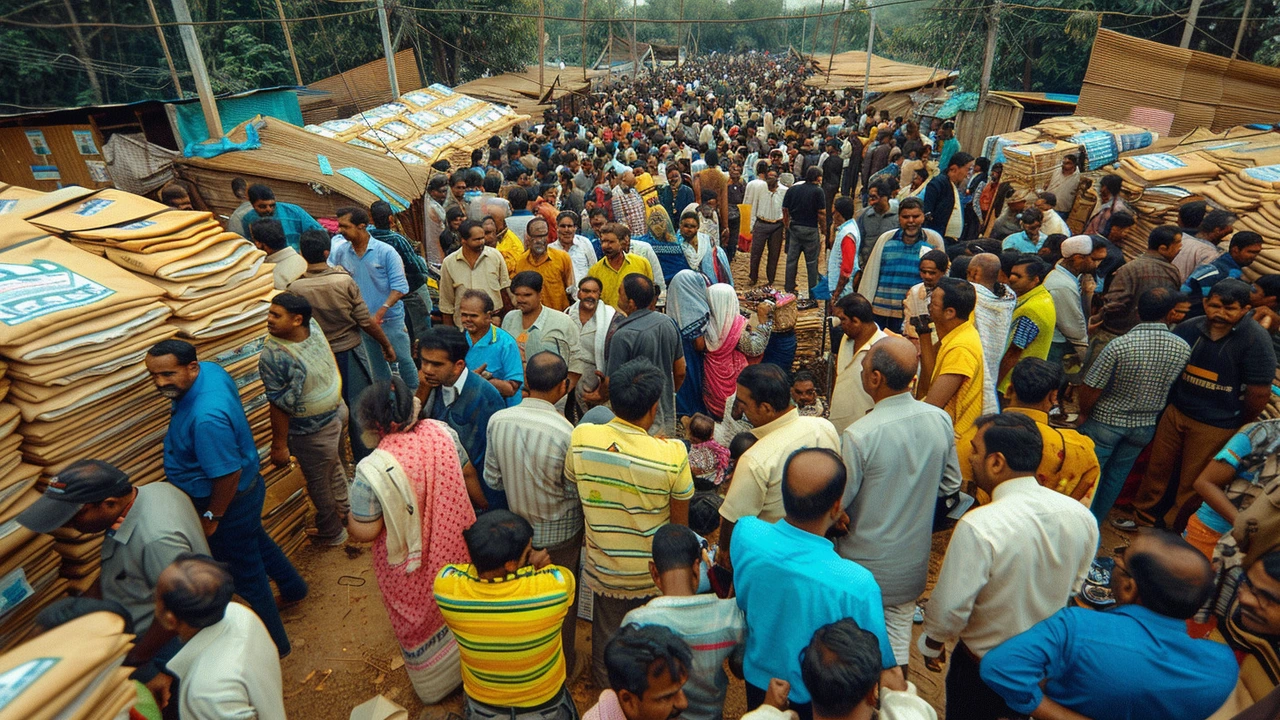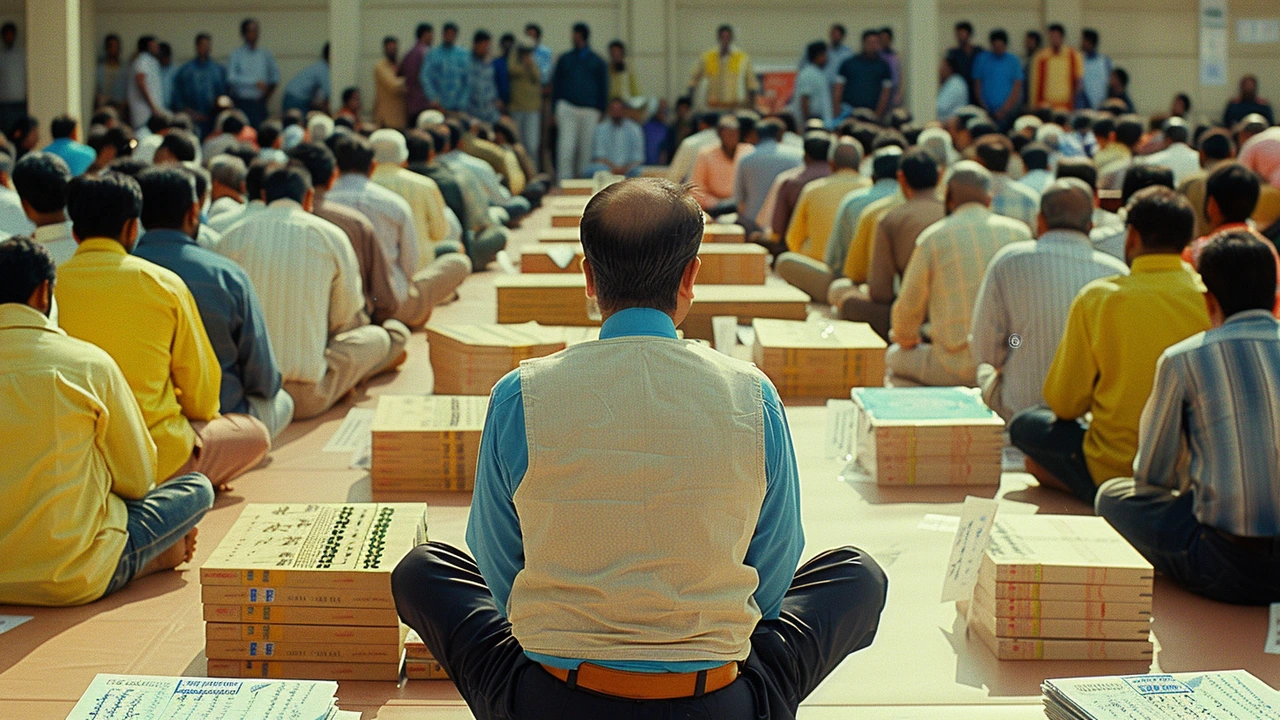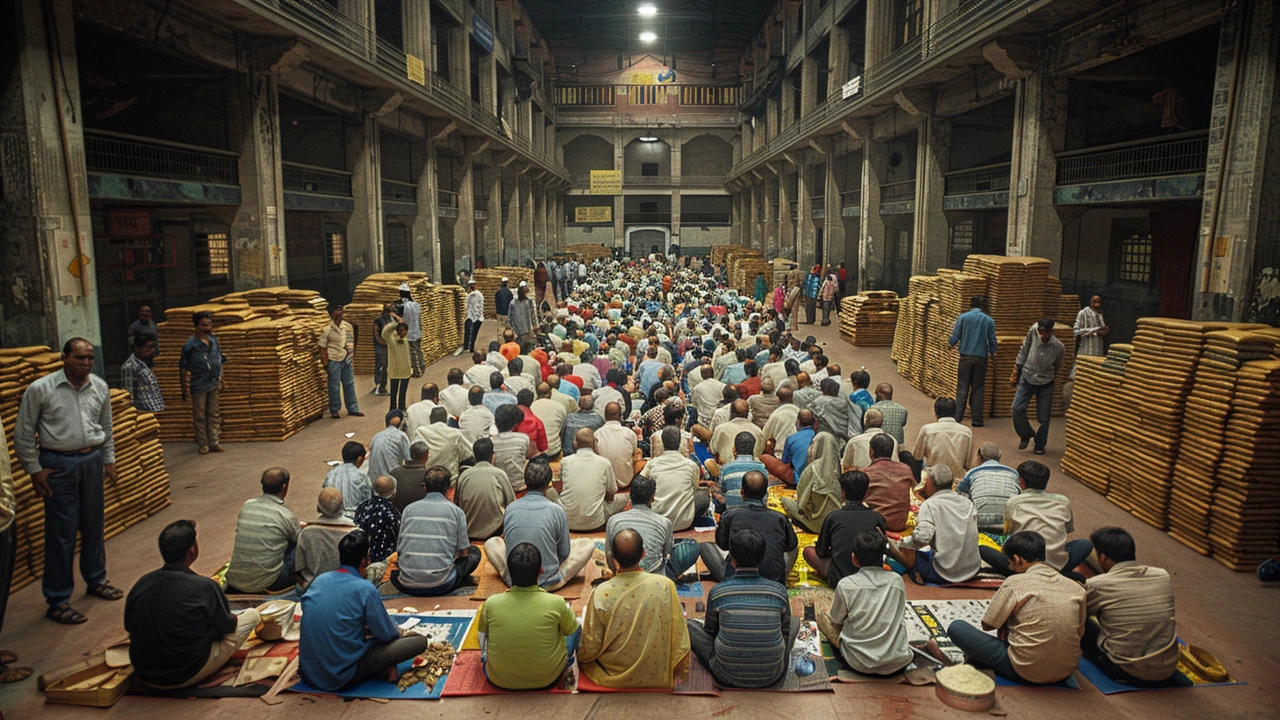India Braces for 2024 Election Results: Modi Eyes Historic Third Term
India stands at a pivotal point as the 2024 election results are set to be unveiled. Prime Minister Narendra Modi, at the helm of the Bharatiya Janata Party (BJP), is forecasted to secure a historic third term in office. This election, one of the most consequential in modern Indian history, has seen the BJP aiming for an unprecedented two-thirds majority in the Lok Sabha, or the 'House of the People.' Such a majority would empower the government to propose significant constitutional amendments, further solidifying its political agenda.
The Anticipated Victory and Its Implications
Exit polls have overwhelmingly indicated a clear victory for the BJP, projecting Modi's dominance in the political landscape of India. The stakes are incredibly high, with the two-thirds majority threshold being a critical factor. Attaining this majority would not only ensure smooth legislative processes for the BJP but also enable them to amend key constitutional provisions. This prospect has sparked a spectrum of reactions, ranging from enthusiastic support among Modi’s backers to deep apprehension among his critics. The opposition INDIA bloc, a coalition of various parties, faces a daunting task of securing more than 180 of the 543 seats to even come close to denying the BJP this formidable majority.
Challenges and Concerns
This election has not been without its challenges and controversies. One of the most severe obstacles came in the form of a devastating heatwave that swept across parts of India during the election period. This extreme weather event tragically resulted in the deaths of several voters and election officials, casting a somber shadow over the democratic process. The handling of this crisis has been a point of contention among political analysts and the public alike.
Critics of the BJP, including various international human rights organizations, have voiced concerns about potential threats to India's democratic institutions. These groups argue that a lack of checks and balances could lead to an erosion of democratic norms. They point to instances of perceived media suppression, alleged misuse of governmental powers, and curtailments on civil liberties as areas of concern under the current administration. The BJP, however, maintains that their governance model is grounded in development and national security, addressing the needs and aspirations of a rapidly evolving electorate.

Regional Dynamics and Preliminary Wins
While the national spotlight is on the Lok Sabha majority, it's also essential to look at the BJP's performance in various regional elections. The party secured notable victories in the northeastern states of Arunachal Pradesh and Sikkim, reinforcing their political stronghold in these regions. These wins are not only symbolic but also strategically significant, adding to the BJP’s overall momentum.
The electoral gains in these states reflect a broader acceptance of BJP’s policies and ideologies among regional electorates. This trend, coupled with the anticipated national victory, paints a picture of a political environment increasingly favoring the BJP's long-term vision. However, these regional successes also contribute to heightening the concerns of opposition parties and critics, who worry about the diminishing scope for regional autonomy and the concentration of power at the center.
Profiles in Focus: Key Figures Shaping the Election
Prime Minister Narendra Modi remains the central figure in this political saga. His leadership style, characterized by assertive decision-making and a focus on economic development, has earned him a devoted following. Yet, his tenure has also been marked by contentious policies and polarizing rhetoric. As Modi prepares for what could be a historic third term, his vision for India will undoubtedly face rigorous scrutiny both at home and abroad.
On the other side of the aisle, opposition leaders like Arvind Kejriwal have been vocal in their dissent. Kejriwal, leading the Aam Aadmi Party (AAP), has consistently challenged the BJP on issues ranging from governance to corruption. His role in this election highlights the enduring contestation in India's vibrant democracy. Yet, with the INDIA bloc struggling to gain traction, the opposition faces significant hurdles in altering the electoral landscape.

The Role of the Election Commission
The Election Commission of India (ECI) has been working tirelessly to ensure the integrity of the electoral process. In the face of logistical challenges imposed by the heatwave, the ECI's efforts to maintain a fair and transparent election have been commendable. However, the institution has also faced criticism from various quarters, with questions raised about its impartiality and effectiveness in managing the sheer scale of Indian elections.
As vote counting progresses, the ECI's actions will be under intense scrutiny. Ensuring accurate and timely results is paramount to upholding public confidence in the democratic process. Any lapses or delays can have far-reaching consequences, affecting not only the political climate but also the social fabric of the nation.
A Nation Awaits: The Significance of Today's Results
As the nation holds its breath in anticipation of the results, the stakes in this election extend far beyond mere numbers. A resounding victory for Modi could signify a new era in Indian politics, marked by enhanced centralization and the pursuit of ambitious reforms. Conversely, any significant gains by the opposition could indicate a pushback against the current administration's policies, paving the way for a more pluralistic political discourse.
For the Indian electorate, this is a moment of reflection and decision. The outcomes of this election will influence the country's direction for years to come, shaping its economy, society, and international relations. As we await the final results, one thing is clear: the 2024 elections will be remembered as a watershed moment in India's democratic journey.
Stay tuned for more updates as the vote counting continues and the future of India's political landscape unfolds before our eyes.







Write a comment